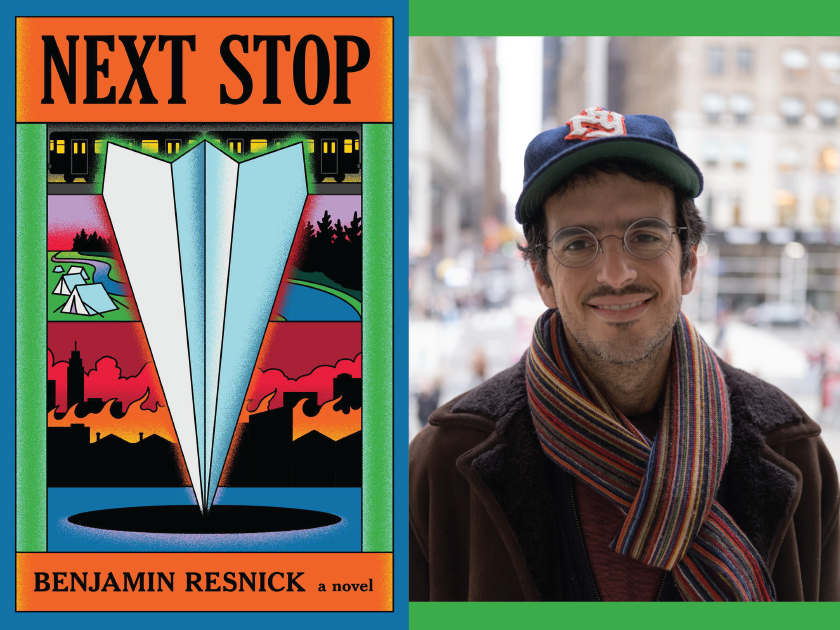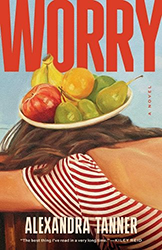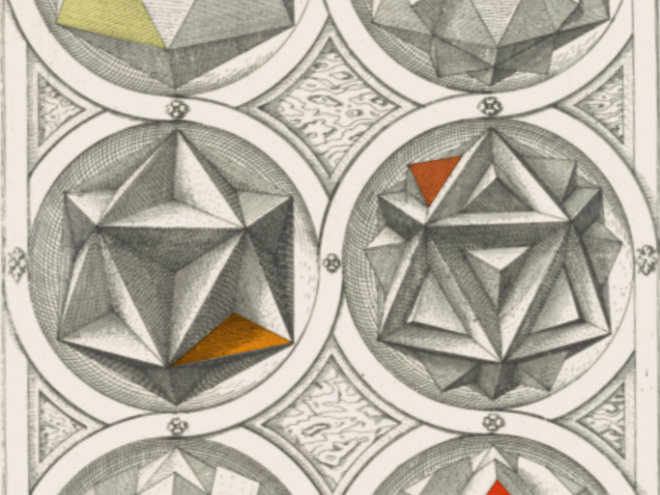
Author photo by Ken Resnick
Jaime Herndon speaks with debut novelist Benjamin Resnick about his engrossing book, Next Stop. The speculative novel follows Jewish life in America as events occur that chip away at normality in large and small ways for people and Jewry at large. Resnick shares how his background as a rabbi influences his fiction writing, the enduring nature of Jewish storytelling, and the books he’s reading.
Jamie Herndon: What was the inspiration for this book?
Benjamin Resnick: Inspiration is tricky to pin down. I think this is particularly true when it comes to things like novels, which are always (or almost always) written over a fairly protracted period of time. Not over years and years, necessarily, but over a long enough stretch of time that a lot happens between the moment when you start writing and the moment when the book is really done. The world changes in between and you change and your interests shift. In the meantime, that initial spark of inspiration, if there was one, has been transformed and altered, often in significant ways. That’s how it seems to me, anyway. I suppose that’s a long way of saying that my inspiration for Next Stop, when I reflect on it, is pretty over-determined — a moving target. This feels particularly true given the timing of this book, which was written well before October 7, but which is coming out after.
One thing I do keep coming back to is the experience of disruption. A central theme in the book is that many of life’s consoling rhythms — related to career, parenting, good health, safety — are really very fragile. That has always been true, of course, but I started writing Next Stop at the tail end of the pandemic and I suspect my preoccupation with disruptions grew out of that whole experience.
The enduring precarity of Jewish being is also something that I think about a lot and so I wanted to tell a story about that. The Seder and the Haggadah are, in my opinion, two of the most extraordinary and inspiring things that Jews have ever created, and in a very real sense all of Next Stop amounts to lengthy exploration of what we say every spring as we tell the story of our complicated freedom: “This is the promise: That not only one arose to destroy us, but in every generation they arise to destroy us, and the Holy One Blessed Be He saves us from their hands.”
And then in terms of my overall style and my sense of what fiction can do, there are many writers whom I love and who have inspired me a lot over the years. A few that come to mind are Kazuo Ishiguro, Mohsin Hamid, Ursula K. Le Guin, Ted Chiang, Norman Maclean, and Bernard Malamud. Most of those writers work, at least some of the time, within the blurry boundaries of speculative fiction. I also really enjoy things like HBO’s The Last Of Us and AMC’s The Walking Dead. Next Stop isn’t exactly post-apocalyptic zombie fiction, but that kind of storytelling appeals to me and was in my head as I was writing.
JH: I know you’re a rabbi, ordained at the Jewish Theological Seminary, how did/does that influence your writing, especially your fiction?
BR: The relationship between my professional life as a fiction writer and my professional life as a rabbi is complex. Sometimes they seem very related to me and sometimes less so. Rabbis are storytellers, of course, and the power and importance of storytelling is something that is deeply woven into rabbinic Jewish culture and into ancient Israelite culture before that. I do a lot of writing and storytelling in my synagogue work and after the careers of Milton Steinberg and Chaim Potok there is a very definite precedent for combining novel writing with the Conservative rabbinate!
Still, while I will probably always write about Jewish characters and Jewish concerns, I’m not really drawn to writing fiction that is specifically about the religious aspects of Jewish life, unlike Potok and Steinberg. For example, I’m not planning to write a novel set in a small, Conservative synagogue any time soon and I think it’s likely that I never will. Probably that’s because part of what attracts me to fiction is that it allows me to inhabit worlds other than my own.
I would also say that what I’m doing when I’m preparing a sermon, for example, feels very different to me than from what I’m doing when I’m writing fiction. With something like a sermon I’m usually thinking very concretely about the point I am trying to make. What do I want people to leave with and how do I say it in such a way that they most likely will? I’m not always developing an argument because often I’m not trying to convince people of anything so much as I am trying to evoke certain kinds of mood or present a variety of Jewish ideas. But I’m still guided by the fact that the sermon, as a literary form, generally calls for a very specific takeaway. And, of course, I want to say something that speaks urgently to a very specific moment in the life of our community.
It’s likewise true that the core currency in sermon writing isn’t originality, or at least I don’t think it is. It’s more about allowing the tradition to speak through you. And although it’s certainly the case that Torah is refracted differently through all of us — in the same way, maybe, that one piece of music will sound different when played by different violinists — giving a great drasha is about trying to quiet oneself and letting the Torah shine.
All of that probably applies, on some level, to fiction as well, but with fiction I simply feel less bound to these kinds of concerns. Writing fiction is more of an adventure — the canvas is bigger and I’m rarely trying to make a very specific point so much as I’m trying to invite the reader into an experience and onto a journey.
But one of the best things about being a rabbi — and I say this all the time — is that my job, my core job, is basically to talk with people — with all kinds of people, in all kinds of situations, at every stage of life. And I love talking with people because people are fascinating! So all day long, pretty much every day, I get to have these fascinating conversations with people about things that are important to them and to me and I find that endlessly inspiring and humbling and I’m sure it influences my fiction in profound, if indirect, ways.
There have been Jews telling Jewish stories for millennia — both to Jewish audiences and to the wider world — and there will still be Jews telling stories and writing Jewish books in a thousand years.
JH: After October 7, did that change anything with the book, like revisions, etc? I remember reading several pages and passages and thinking this is how it felt on October 7 and 8. I’m thinking especially of pages ninety-two to ninety-three, when Ethan and Ella are just surfing the internet and seeing a barrage of news and updates and horror, interspersed with antisemitism from people they know and don’t know.
BR: No, October 7 did not affect the revisions in any significant way. The central plot points — the precarity of Jewish life in both America and in Israel, the quasi-mythical centrality of the Jewish family, the encroachment of vicious technologies, the mysterious black holes, the consoling warmth of domesticity and its many shades of love — were all already in place.
It’s interesting that you bring up that particular scene — it’s one of my favorites and I remember writing it fairly quickly and easily, which doesn’t happen so often. It was actually written long before October 7. It was based on the experience of doom scrolling during the pandemic, which was a terrible way that we all spent a lot of time and still do.
JH: As a parent, this book was tough to read sometimes, and I’m trying not to give anything away with this question here! But the book also reminded me of books about the Shoah — and I try to never make comparisons, for obvious reasons. But so many themes and situations, even of today, don’t quite repeat themselves, but rhyme, as they say. And similarly, in your book, it wasn’t that they mirrored those stories, but brought them to mind in a different way. Was that intentional, or is that just a facet of our stories and our history?
BR: Mostly the latter. The legacy of the Shoah is, obviously, part of how I think about the world as a Jew and definitely as a father. I have to believe that’s true for all Jews. And there are books and stories about the Holocaust that I think about all the time — Art Spiegelman’s Maus, for example, and Jane Yolen’s marvelous The Devil’s Arithmetic. But I wasn’t specifically focused on Holocaust stories while I was working. I was more interested in the cyclical nature of antisemitism itself, which has always seemed to me like a monster living in the closet. Sometimes it sleeps, but eventually it wakes up and when it does it wakes up it’s hungry. In Next Stop I am trying to imagine what it will look like when the monster, inevitably, wakes up here in America.
JH: What books are on your nightstand/in your tote bag right now?
BR: I’m finally reading Cloud Atlas, by David Mitchell. It’s amazing and vast, as advertised. I also have Lavie Tidhar’s Central Station on my nightstand, which I can’t wait to start. I’m planning to teach a course later in the fall about Jewish science fiction, and I’m sure I’ll talk about his work. Over the summer I read After Birth by Elisa Albert, which is an incredible book about motherhood that I can’t get out of my head. And I also recently revisited Isaac Bashevis Singer’s Satan In Goray, which I do periodically. It’s a true masterpiece — so elemental and immersive and more than a little frightening.
And I have lots of High Holiday-related things because I’m working on sermons!
JH: What do you think about the future of Jewish authors and Jewish books in the literary world, given the rampant antisemitism we’re seeing now?
BR: I don’t follow the business of publishing all that closely, so I’m not sure I have an expert opinion here. On the one hand there is the fear that publishing houses and editors and bookstores won’t be as willing to elevate Jewish stories. On the other hand, there are still a lot of Jewish stories being told and Jewish books coming out, Next Stop among them. I would say the near-term outlook is turbid. It’s just hard to predict what’s around the corner.
I will say this: Jews are some of the most ancient and enduring storytellers in the world. There have been Jews telling Jewish stories for millennia — both to Jewish audiences and to the wider world — and there will still be Jews telling stories and writing Jewish books in a thousand years. I can’t prove it but I believe it with perfect faith and I also believe that history suggests it’ll be true.
When we think about the trajectory of Jewish writing today and about posterity, I do think that Jewish writers — and this is a point that the great Cynthia Ozick makes in an extraordinary and under-read essay called “Toward A New Yiddish” — should try to focus on telling robustly Jewish stories. That can and should and will mean many different things because Judaism, as a lived reality, is very far from monolithic. Whenever anyone asks me (and as a rabbi they ask me a lot!), “What does Judaism say about X?” my somewhat glib (though deeply felt) response is, “Well, Jews say a lot about a lot.” But I do believe there are some uniquely Jewish ways of seeing the world and some uniquely Jewish ways of using language to tell stories about our lives. And, regardless of what happens near-term in the publishing world, I suspect that Jewish writers who are specifically attentive to our uniqueness in their work have a brighter future than Jewish writers who are not.
JH: What do you hope readers get from your novel?
BR: I’ll try to answer this, in part, in light of what I said in answering the previous question.
For Jewish readers, I want them to feel, on every page of Next Stop, the vital, undying pulse of our people. It is a frightening book in many ways, but I don’t think it’s a grim one. I hope that it can play some role in the never-ending Jewish conversation about who we’ve been and where we’re headed.
To non-Jewish readers, I hope that the book offers an invitation into an intimate encounter with a culture and way of seeing that is different from their own. And of course I hope that they recognize something of themselves and their own families in the story as it unfolds — an irreducible imprint of the extraordinary and perishable world that we all share.
JH: What are you working on currently?
BR: I’ve just started a new novel that I’m very excited about. I won’t share too much, but it’s set in the near-ish future and includes a Hebrew school teacher who is an AI version of Golda Meir.
And I’m getting ready for the holidays!
Jaime Herndon is a medical writer who also writes about parenting and pop culture in her spare time. Her writing can be seen on Kveller, Undark, Book Riot, and more. When she’s not working or homeschooling, she’s at work on an essay collection.



